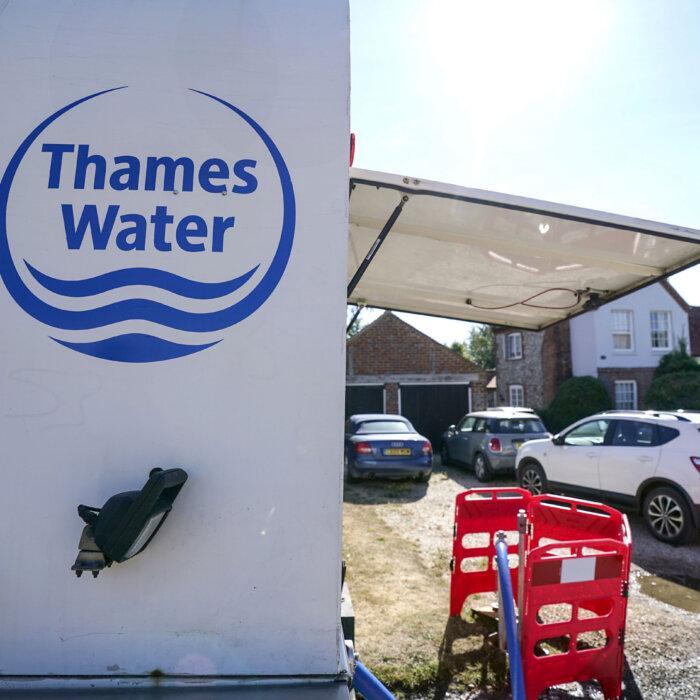A proposed financial overhaul of Thames Water by a group of its U.S. and UK creditors has emerged against the backdrop of a wider debate over foreign ownership and public accountability in the water sector.
Major institutional investors including BlackRock, Aberdeen, and Elliott Management have put forward a plan to restructure Thames Water’s £17 billion debt. It would involve injecting £3 billion in new equity and £2 billion in additional funding, as well as writing off several billion pounds of existing debt.
“The plan seeks to break from the patterns of the past by delivering customers’ priorities and improved outcomes for the environment in the shortest possible timeframe,” a spokesperson for the creditors told The Epoch Times.
However, the group asked for regulatory flexibility in return. They want Ofwat to take a “pragmatic approach” by easing performance targets and compliance expectations.
According to Thames Water, “constructive discussions” with many of its stakeholders are ongoing, while its board is expected to review the turnaround plan in the coming weeks.
In response to the creditor’s proposal, Ofwat confirmed it is conducting a thorough review.
“Our focus is on assessing whether the plans are realistic, deliverable, and will bring substantial benefits for customers and the environment,” an Ofwat spokesperson told The Epoch Times.
Foreign Ownership
Since the Thatcher-era privatisation of water in 1989, all major regional suppliers in England and Wales have been privatised, promising increased investment and efficiency.However, in the last decade alone, water companies have awarded over £112 million in bonuses and incentives to shareholders. In response, the government enforced a ban on “unfair bonuses” for six water companies that failed to meet environmental and customer service standards.
This applies to Thames Water, Yorkshire Water, Anglian Water, Wessex Water, United Utilities, and Southern Water.

Its largest shareholder is the Ontario Municipal Employees Retirement System (Canada), with a 32 percent stake. Other investors include the UK’s Universities Superannuation Scheme (20 percent), China Investment Corporation, Abu Dhabi Investment Authority, and Hermes.
Southern Water is majority-owned by Australian investment giant Macquarie, while Yorkshire Water is split among investors from Singapore, Hong Kong, Germany, and Australia.
Only a handful of water companies remain publicly listed, such as Severn Trent, United Utilities, and South West Water (via the Pennon Group).
Nationalisation Debate
Amid growing financial distress and record fines levied by Ofwat, political pressure has intensified for Thames Water to be brought into public ownership.Despite growing political momentum for public ownership, the government hasn’t confirmed any nationalisation plans.
The Water Bill failed to secure government backing in March, as environment minister Emma Hardy warned it could cost more than £200 billion to renationalise the water industry.
“It would take years to unpick the current ownership model, during which time the sector’s issues would only get worse. The government instead wants to tackle the situation as quickly as possible by improving the privatised regulated model,” she added.
Speaking about official plans to nationalise the water industry, the Department for Environment, Food and Rural Affairs told The Epoch Times that “it would be inappropriate” to comment on specific commercial cases.






